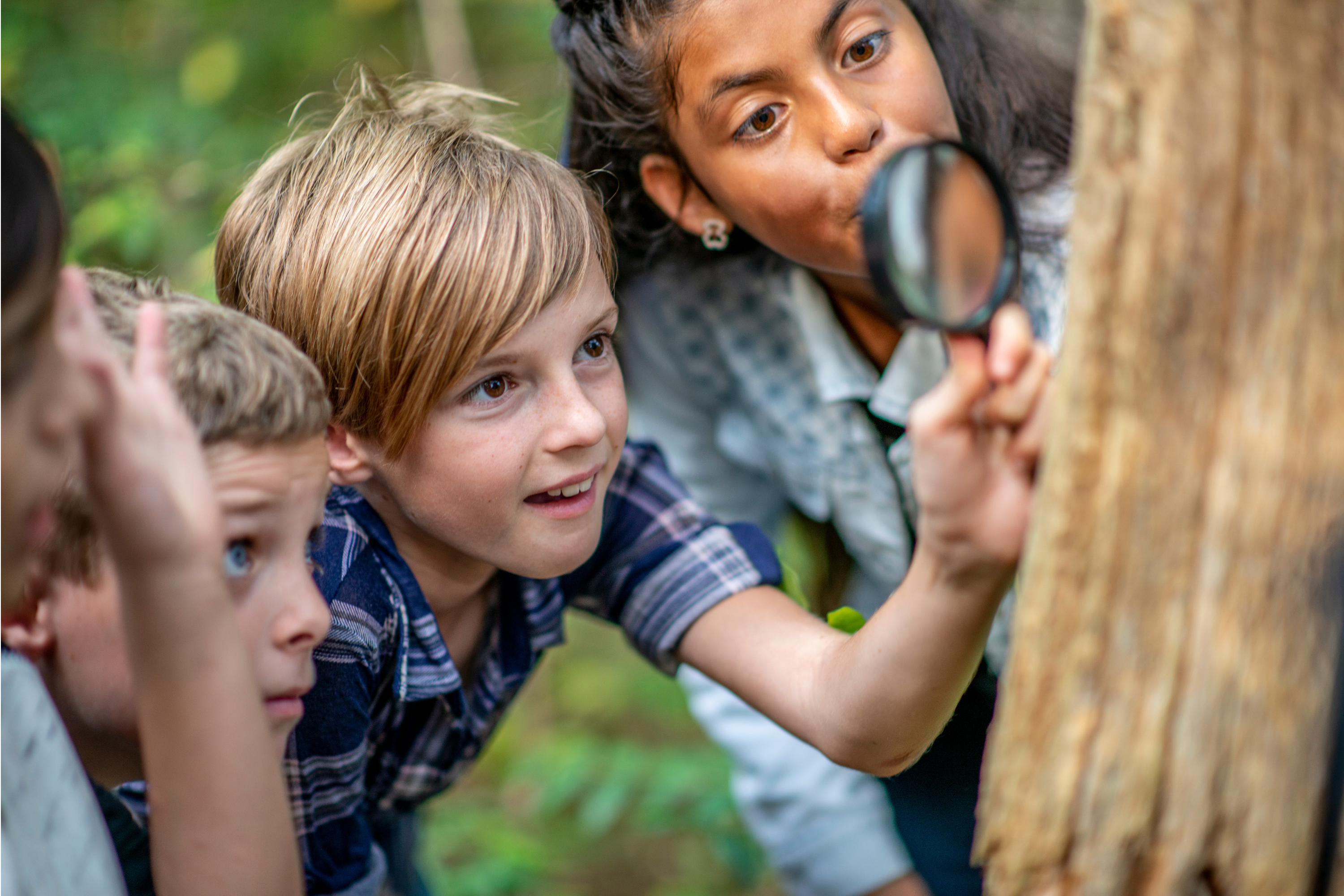There’s something interesting that I’ve learned about children through Montessori. And, it’s incredible power of imagination for elementary children, not younger children. Imagination is something we often attribute to small children. During preschool years we might say, “look at how much they pretend!” And, for the elementary years society expects rote learning of concrete facts.
But as Montessori parents we have to recognize that it’s quite the opposite - young children live in a concrete world and elementary children have boundless imagination.
Montessori Elementary: The Power of Imagination
Maria Montessori observed that small children (in the first plane of development) were created to learn and absorb everything around them. From language to their culture, little children are naturally drawn to the basic realities around them and learn about these realities through their senses. They manipulate the world around them to learn.
"Touching for the younger child is what imagining is for the older one. On the former age level we would have worked on the sensorial plane as, for the latter, we work on the level of the imagination." Maria Montessori, From Childhood to Adolescence (p. 20)
But, once the second plane of development hits, the world and its possibilities explodes. No longer are children limited with the experiences that they absorb. They move into abstraction because they can imagine. They can understand things that they cannot possibly hold. They crave big, new, and grand impressions. Maria Montessori goes so far as to call this a "sort of sensory period for the imagination." (From Childhood to Adolescence p. 22)
This is the age to give children more. To set their interest ablaze through supporting their imagination. It's not the time for just facts, for just math problems, for just history, or just rules. They are more than that. They are people capable of making connections, seeing the big picture and abstraction of all sorts of knowledge.
This is the age to give children more. To set their interest ablaze through supporting their imagination. It's not the time for just facts, for just math problems, for just history, or just rules. They are more than that. They are people capable of making connections, seeing the big picture and abstraction of all sorts of knowledge.
"Human consciousness comes into the world as a flaming ball of imagination. Everything invented by man, physical or mental, is the fruit of someone's imagination. In the study of history and geography we are helpless without imagination, and when we propose to introduce the universe to the child, what but imagination can be of use to us? I consider it a crime to present such subjects as may be noble and creative aids to the imaginative faculty in such a manner as to deny its use, and on the other hand to require the child to memorize that which he has not been able to visualize. These subjects must be presented so as to touch the imagination of the child, and make him enthusiastic, and then add fuel to the burning fire that has been lit." Maria Montessori, To Educate the Human Potential (p. 8)
Imagination becomes the driving force of learning. If we can spark an imaginative thought, second plane children can run with it. This isn't merely fantasy. But, imagining solutions to real problems, imagining the vastness of the universe, imagining the past. We touch the imagination and we open up the world.
Harness the Power of Imagination in the Second Plane
So, practically, what does this mean as a Montessori parent? This means you need to tap into the incredible powers of imagination for your elementary aged kid. We can't rely as much on modeling expectations we want to see; we can't hope they are going to observe us and want to follow along. No, we need to harness their imagination and use it to engage our child in their learning of both our family's expectations and academic subjects.
- Introduce more fantasy in media: fables, myths, works of fiction, they love it all. Big stories, other worlds, the unreal, it all opens up with incredible interest. Find your child's love and go with it.
- Consider the Great Lessons: even if your child isn't attending a Montessori school, opening up the world to them through these incredible stories can help unlock a love of learning.
- Use stories to teach: (even if you have to make them up) there is incredible power in helping your child make connections through a story. Rules/Morals/Social Manners/Values + Imagination = sparking real interest and lasting impact in the second plane of development
- Imagine with your child: what could the consequences be if XYZ happens, what could a solution to that problem look like
- Ask for their help with issues: these powers lead to very creative solutions and much happier participants when they have a say in the solution to the problem
- Give them time to play, imagine, and create: pretending isn't just for small children. Don't rush your children away from open ended play, learning, imagining
Montessori parenting is at it's core about reaching, respecting, and responding to the developmental needs of our children and their unique paths. And, for children in the second plane of development, that is reaching them through the imagination.




